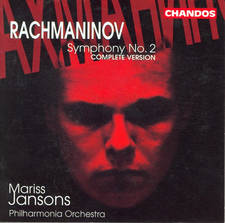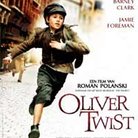Film Composer In Focus - Rachel Portman
The Oscar winner Rachel Portman thought her score for Oliver Twist was complete – then director Roman Polanski asked for more.
Composer John Williams once said: “Film is the opera of the second half of the 20th century.” And lately, there have been renewed signs that the two art forms are as closely linked as he suggests.
Franco Zeffirelli’s production of Leoncavallo’s Pagliacci, starring Roberto Alagna and Angela Gheorghiu, returned to the Los Angeles Opera in the autumn. Movie director Anthony Minghella is making his directorial debut with the English National Opera’s Madama Butterfly in November. And the likes of Peter Jackson, director of Lord Of The Rings, are making an increasingly operatic use of film music, demanding scores of near-Wagnerian proportions to fill their pictures.
Roman Polanski is the latest movie director to turn to opera for inspiration, commissioning English composer Rachel Portman to write a 75-minute score for his film adaptation of Charles Dickens’s classic novel, Oliver Twist.
For anyone who, for whatever reason, is unfamiliar with the story, a young orphan Oliver (Barney Clarke in this adaptation) escapes life in a workhouse only to be taken in by Fagin (superbly played by Ben Kingsley), ringleader of a team of young crooks who survive by pickpocketing on the streets of 19th-century London. But in a twist of good fortune, a kind book-keeper (played by Edward Hardwicke) offers Oliver the hope of an educated and well-heeled future. First, though, he must survive long enough in the life he wants to leave behind.
Unlike the Oliver! musical, Polanski’s film has no songs. Instead, it is Portman’s orchestrated melodies that give us insights into Dickens’s characters. Having recently penned the score for Douglas McGrath’s Nicholas Nickleby, Portman is no stranger to Victorian London, but Polanski’s decision to line more than half the film with music caught her by surprise.
The City of Prague Philharmonic recorded the score – initially 45 minutes long – in Prague last April, but Polanski has since asked for more.
“It was difficult because the recording seemed fine, but then Roman came back to me a week later and said we needed to play it like an opera,” Portman explains.
“This meant writing themes for the characters and introducing far more emotion into the score – particularly between Fagin and Oliver.”
Polanski is renowned for his keen musical sense on film, putting Chopin in the foreground of his Oscar-winning film The Pianist and weaving the Amadeus Quartet’s recording of Schubert into the thriller Death and the Maiden.
By contrast, it’s the largely invisible nature of Portman’s score for Oliver Twist that makes it worthy of recognition: simple themes discreetly get under the skin of each of the main characters – the Artful Dodger, Fagin and Bill Sykes – and bring to mind the cruel and brutal world in which fate bounces Oliver around like a pinball.
“Roman’s very particular about the sentiment but beyond that he never interferes with the melody,” Portman reveals. “One of the hardest questions to answer musically was, how dark is this film?”
Roman’s response?
“It’s like Snow White: dark but good for children.”





